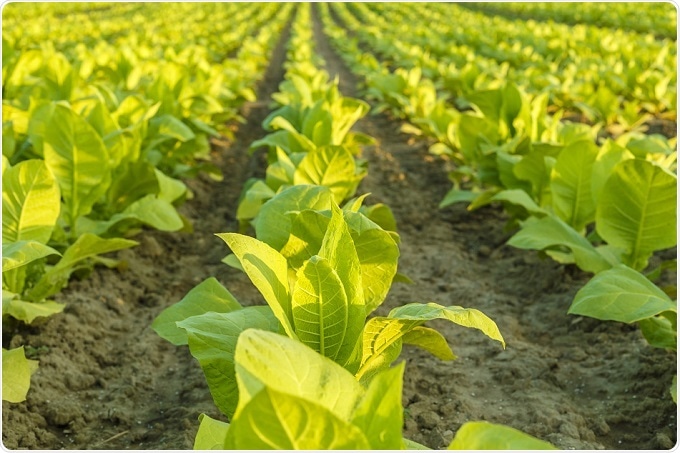
Polio vaccine developed using tobacco plants could transform how vaccines are made
Scientists have used plants to create a new polio vaccine in what is hoped to be a breakthrough in the way vaccines are made.
 Credit: nnattalli/Shutterstock.com
Credit: nnattalli/Shutterstock.comResearchers from the John Innes Center in Norfolk believe their approach, which they refer to as quick, easy and cheap, could not only eliminate polio, but could be used to react to other potential threats in the future such as Ebola or Zika virus.
To create the vaccine, the researchers took the genetic code that is used to make the surface of poliovirus and added genetic material from viruses that infect plants. The new genes were then placed in soil bacteria, which infiltrated tobacco plants. The host plant read the new instructions and made large quantities of virus-like particles (VLPs) using its own protein expression mechanisms.
VLPs look almost identical to original viruses, but they are not infectious because they do not contain the nucleic acid needed for viruses to replicate. The immune system is stimulated by the virus and “trained” to respond to it, without an infection developing.
The team mixed the infected leaves with water, extracted the VLPs and administered them to animals, which then demonstrated immunity to polio.
Experts are calling the approach impressive and important.
The World Health Organisation (WHO) funded the breakthrough; it is trying to find alternatives to the live attenuated virus that is currently used for polio vaccines because live viruses carry the risk of escaping and reintroducing the disease.
Denis Murphy, a biotechnology professor from the University of South Wales refers to the current development as an important achievement. The challenge now, he says, is “to optimise the plant expression system and to move towards clinical trials of the new vaccine."
Lomonossoff says he hopes vaccines will be produced in plants in the not too distant future: "The beauty of this system of growing non-pathogenic virus mimics in plants, is that it boosts our ability to scale-up the production of vaccine candidates to combat emerging threats to human health.”
























.png)











No hay comentarios:
Publicar un comentario